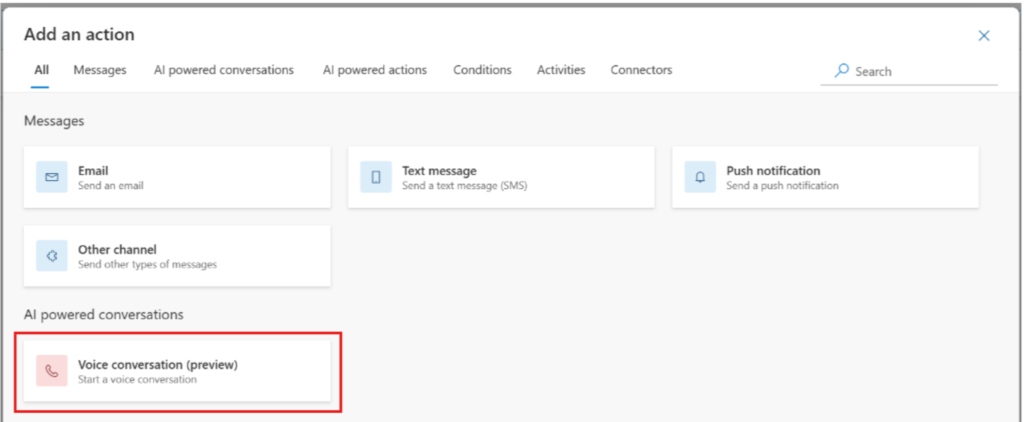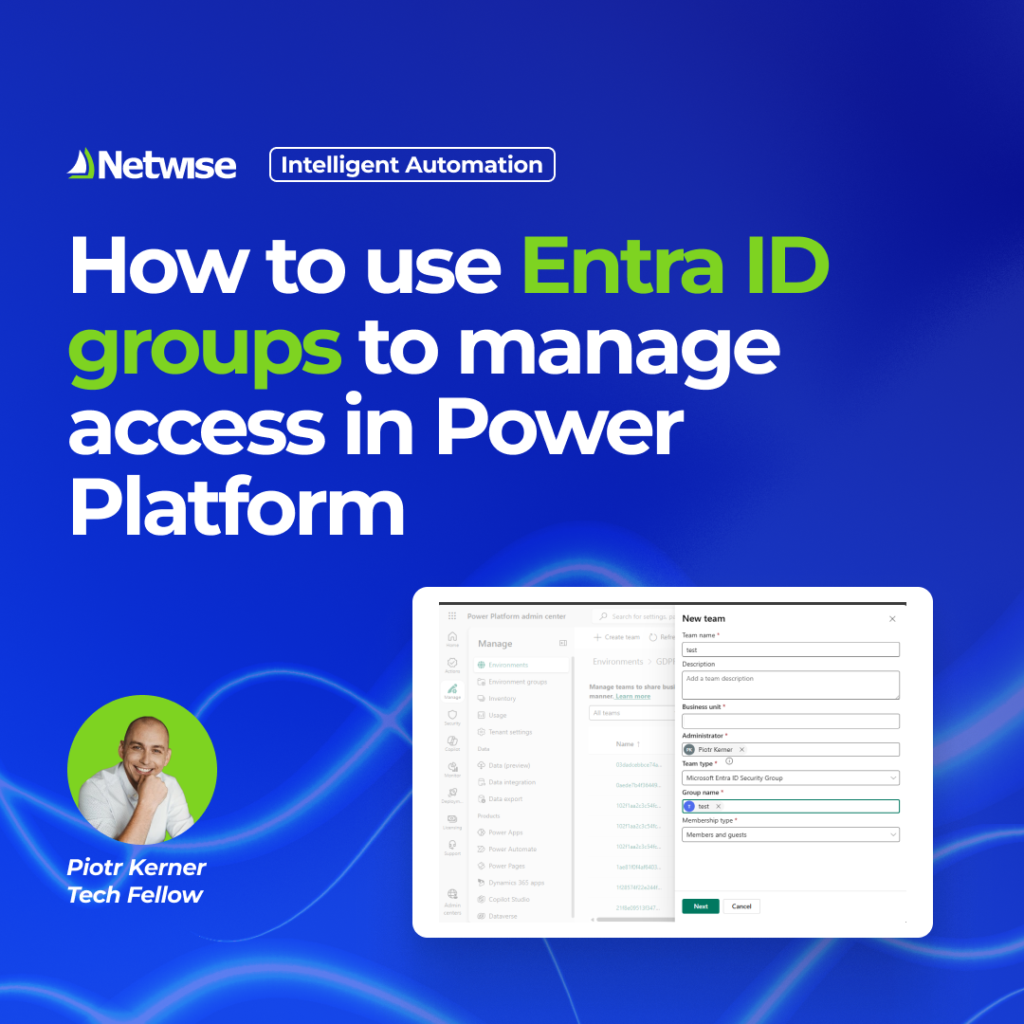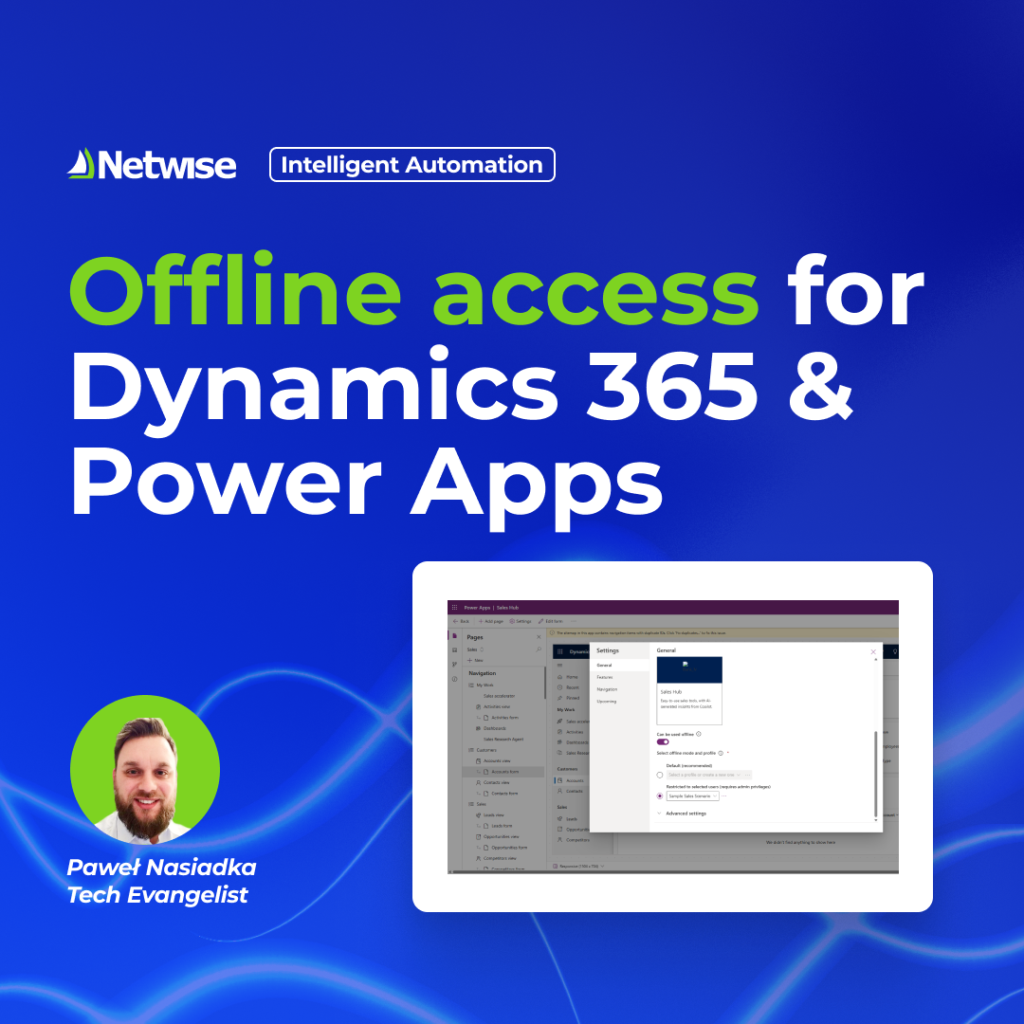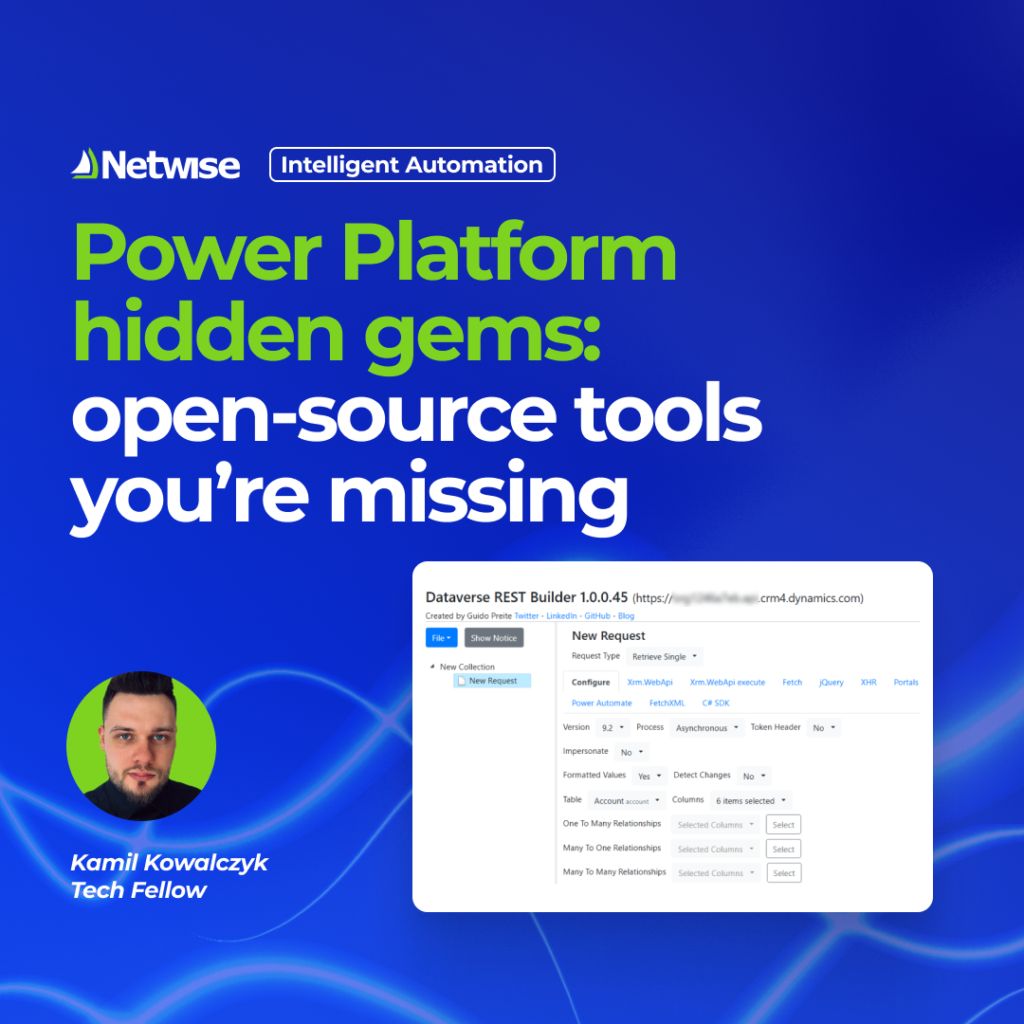From unwanted cold calls to valuable customer interactions
Most of us have experienced unwanted cold calls urging us to buy something. These calls were often stressful for both sides – the caller and the person receiving the call – and over time they made people reluctant to answer the phone at all.
This is the background for today’s story, where Microsoft introduces automated voice calls not as part of sales, but as a customer service process. Instead of an unsolicited call about a new investment account, customers can now receive a welcome and timely call about the status of their complaint or an important update.
How it works in Dynamics 365 Contact Center
Microsoft recently enhanced its new D365 Contact Center – already a strong system for handling inbound inquiries – by adding proactive voice interactions. These can be followed by engagement through other messaging channels.
The feature currently supports three outbound modes:
-
Copilot
As the name suggests, this is a fully automated, Copilot-only experience. The virtual agent makes the call, completes the conversation, and then ends the call. This mode is designed for high-volume scenarios. -
Progressive
In this mode, Copilot automatically makes the outbound call and handles the initial interaction or questions. If needed, the call is then handed over to a human agent. -
Preview
Here, the system only initiates an outbound call when a human agent is available and has accepted the call request in advance. This ensures immediate availability of the representative, but may reduce efficiency if many calls go unanswered.
Across all modes, you can fine-tune system behavior: such as the order of scheduled calls, priority levels, and a flexible call rate that adjusts to customer responses.
This new functionality also integrates seamlessly with Unified Routing, another feature we’ve covered previously on our blog. When a call reaches a human agent in Preview or Progressive mode, or is escalated in Copilot mode, the system uses predefined rules to route the call to an agent with the right skills.
Copilot Studio: the core of Proactive Engagement
At the heart of Proactive Engagement lies Copilot Studio.
Using Gen AI orchestration with GPT-5, it enables companies to create virtual assistants that converse naturally with customers. The bot can be tailored with prompts that define how it should behave, which questions to ask, and what information to capture for later.
For example, if a customer answers but says they can’t talk until 2–3 PM the next day, the bot can recognize this, update the schedule, and automatically arrange a follow-up – whether in Copilot or Preview mode – at the customer’s preferred time.
Thanks to generative AI, the assistant isn’t limited to a fixed script. It can draw on enabled knowledge base files or other sources to answer questions, even after completing the primary goal of the call.
Planning and scheduling outbound calls
Once you know how Proactive Engagement works, the next question is:
“How can I plan and schedule these calls?”
The system supports two main approaches:
1. D365 Customer Insights Journeys
This provides the full SaaS platform experience of Dynamics 365. Existing Customer Journeys can be enhanced with proactive calls, easily configured by business users. They can decide which audience should receive a call and when – a great example of a low-code/no-code setup.
2. Power Platform API
For organizations not using Microsoft’s marketing tools, Proactive Engagement can be integrated with third-party systems via the Power Platform API. Developers or low-coders (using tools like Power Automate) can trigger and schedule outbound calls from external applications.

Costs of D365 Proactive Engagement
Configuration of Proactive Engagement is included with D365 Contact Center or D365 Customer Service Premium licenses. Additional charges may apply if the Gen AI–powered bot uses external tools or knowledge sources, as these consume Copilot Studio messages.
Benefits of D365 Proactive Engagement
The most obvious benefit is financial: automating outbound calls saves costs by optimizing and speeding up processes. But the customer experience advantage can be even greater:
-
Higher satisfaction and retention
Customers appreciate personalized reminders (e.g., about upcoming appointments or expiring insurance policies). -
Stronger relationships
Timely, relevant calls foster trust and loyalty. -
Competitive advantage
Using Copilot can help companies deliver superior customer experiences compared to competitors.
The golden rule: Don’t overwhelm customers with excessive calls, especially sales-focused ones. Used thoughtfully, Proactive Engagement can become a valuable tool that blends efficiency with a personal touch.



